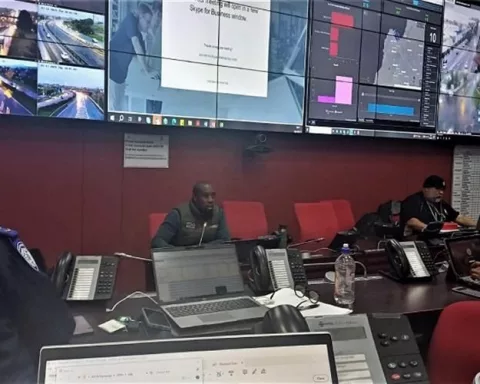The South African government has expressed optimism regarding the latest Quarterly Labour Force Survey results, despite a rise in unemployment. The increase in the number of employed individuals is a significant development that offers hope for the country’s economic growth and recovery.
Employment Rate Climbs, Discouraged Work-Seekers Decline
In the first quarter of 2023, the employment rate in South Africa rose by 258,000, reaching a total of 16.2 million people. This continuous growth over six consecutive quarters is drawing closer to the pre-pandemic employment level of 16.4 million. Additionally, there was a decrease of 209,000 in the number of people who were not economically active beyond discouragement, and a notable decline of 87,000 discouraged work-seekers.
Sectors and Regions with Significant Employment Gains
The Finance, Community and Social Services, and Agriculture sectors experienced the most significant employment gains. The regions that showed the largest employment increases during the first quarter of 2023 were Gauteng, Limpopo, Western Cape, KwaZulu-Natal, and the Eastern Cape.
Government’s Focus on Comprehensive Reforms and Youth Employment
To address the economic challenges facing the nation, the government continues to focus on comprehensive reforms and fostering conditions for business expansion. The Presidential Youth Employment Intervention is also in place, with various youth development and empowerment initiatives implemented to encourage youth participation in the economy. Structural reforms through Operation Vulindlela aim to revive growth and support job creation by firms.
Challenges and the Need for Inclusive and Sustainable Efforts
While the recent developments in employment are positive, it is necessary to consider the broader context of these improvements and the challenges that still need to be overcome. For instance, more targeted interventions may be required to address the specific barriers faced by young people, such as a lack of relevant skills and experience or limited access to networks and resources.
Moreover, employment opportunities with fair wages, safe working conditions, and adequate social protection are necessary to promote inclusive growth and reduce poverty and inequality. It is essential to ensure that the ongoing efforts to address inequality, poverty, and unemployment are inclusive, sustainable, and responsive to the needs of all citizens.
The latest Quarterly Labour Force Survey results show positive developments in South Africa’s employment landscape, but there is still much work to be done. The government’s commitment to addressing economic challenges and creating opportunities for all citizens is commendable. However, the efforts need to be inclusive, sustainable, and responsive to the needs of all citizens.












